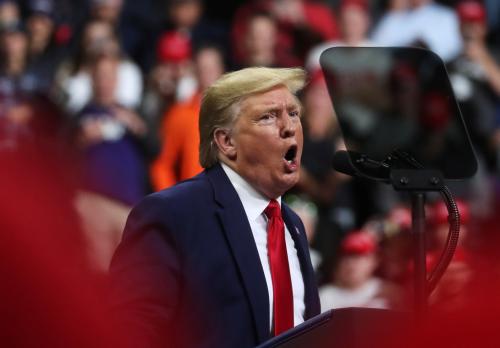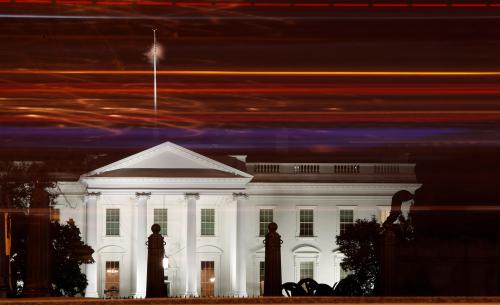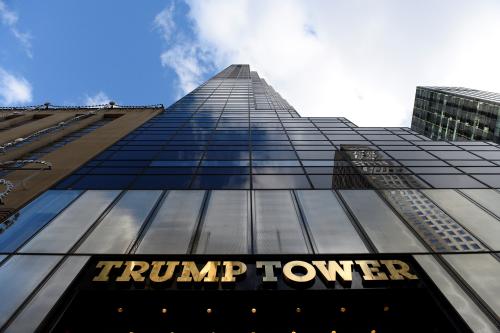As the impeachment trial unfolds, the White House continues to block—or support blocking—calls to turn over documents or make certain witnesses available to congressional investigators. While maintaining his innocence in the impeachment trial, President Donald Trump has argued that privilege applies to communications in written form and among advisers. In addition, documents that have been released to groups in response to FOIA requests have been heavily redacted under privilege or national security claims.
These actions have pushed Democrats and others to wonder: what is the White House hiding?
The ghosts of Watergate haunt the restriction of documents in the Trump impeachment process. In a press scrum in Switzerland, the president even bragged about the withholding of evidence from Congress (the basis of the second impeachment article against him) by noting, “We have all the material. They (congressional Democrats) don’t have the material.” President Trump is not withholding tapes. Instead, he is withholding complete transcripts, emails, and the testimony of aides, but what he is doing is running the Nixon playbook.
Some will argue that in a court of law, the accused does not have to prove his or her innocence. However, as Chief Justice John Roberts reminds us at the start of each trial day, senators are sitting in a court of impeachment. The standards are different; the expectations differ from that of a traditional jury trial. But what’s more, impeachment is a stain on a presidency, and a president who seeks to rid himself of the historical scarlet letter “I” should work tirelessly to demonstrate his innocence and put to rest the accusations from the House of Representatives. For President Trump, that would include turning over material that demonstrates his true concern with Ukrainian corruption rather than a politicized focus on the best way to derail Joe Biden’s candidacy. That approach would do more than ensure a Republican party-line vote acquitting him in the Senate. It would help bring moderate Democrats to his side and exonerate him in the eyes of both the public and the annals of history.
However, if that material includes damning information, President Trump is likely learning from the manner in which Watergate unfolded and the Nixon presidency ended, and mimicking Mr. Nixon’s strategy. He may well recognize that the release of such information could increase the support for his removal from office and concomitantly degrade his support in the United States Senate.
During the summer of 1973, a White House aide revealed that a taping system existed in the Oval Office, which set off a legal battle over the release of its recordings. The Nixon administration resisted disclosure in a case that ultimately made its way to the U.S. Supreme Court. During this legal battle, support for the impeachment and removal of the president grew steadily, although never breaking the 50 percent mark, through most of the summer of 1974.
President Nixon knew what was on the tapes. Aides and others present for specific meetings knew what was on the tapes. The rest of America and the Congress investigating the president remained in the dark. However, in late July 1974, the United States Supreme Court ruled unanimously that the president needed to release the tapes to Congress. It was this moment that marked the beginning of the end of the Nixon presidency. Within two weeks the president would announce his resignation as support for impeachment and removal rose to 57 percent (not to mention support in the Senate plummeted).
Right now, the president is relying on a few numbers.
67: The number of Senate votes required to remove him from office.
53: The number of Republican senators.
18: The number of Republican senators from states the president won with 60 percent of more.
48.5: The percent of Americans who support removing the president from office (as of Jan. 23, 2020).
The president who won the White House by about 78,000 votes realizes he is about 20 votes away from being removed from office early; ensuring Congress remains in the dark may be his only path to beating the rap.
This work is licensed under the Creative Commons Attribution-NonCommerical-NoDerivatives 4.0 International License. To view a copy of the license, visit https://creativecommons.org/licenses/by-nc-nd/4.0/.







Commentary
President Trump is hiding the modern-day Nixon tapes
January 24, 2020